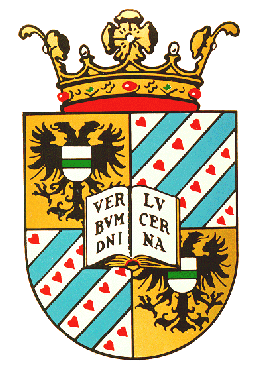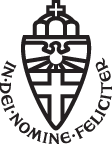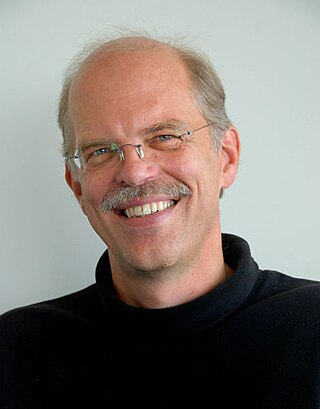
Leiden University is a public research university in Leiden, Netherlands. It was founded as a Protestant university in 1575 by William, Prince of Orange, making it the oldest institution of higher education in the Netherlands.

The University of Groningen is a public research university of more than 30,000 students in the city of Groningen in the Netherlands. Founded in 1614, the university is the second oldest in the country and one of the most traditional and prestigious universities in the Netherlands.
The Marcel Benoist Prize, offered by the Marcel Benoist Foundation, is a monetary prize that has been offered annually since 1920 to a scientist of Swiss nationality or residency who has made the most useful scientific discovery. Emphasis is placed on those discoveries affecting human life. Since 1997, candidates in the humanities have also been eligible for the prize.

Robertus Henricus "Robbert" Dijkgraaf FRSE is a Dutch theoretical physicist, mathematician and string theorist, and the current Minister of Education, Culture and Science in the Netherlands. From July 2012 until his inauguration as minister in January 2022, he had been the director and Leon Levy professor at the Institute for Advanced Study in Princeton, New Jersey, and a tenured professor at the University of Amsterdam.

Radboud University (abbreviated as RU, Dutch: Radboud Universiteit, formerly Katholieke Universiteit Nijmegen) is a public research university located in Nijmegen, the Netherlands. The university bears the name of Saint Radboud, a 9th-century Dutch bishop who was known for his intellect and support of the underprivileged.
The Goethe Prize of the City of Frankfurt is an award for achievement "worthy of honour in memory of Johann Wolfgang von Goethe" made by the city of Frankfurt am Main, Germany. It was usually an annual award until 1955, and thereafter has been triennial. Following a decision of municipal authorities in 1952, the "Award of the Goethe Prize" only takes place every three years. Many recipients are authors, but persons working in several other creative and scientific fields have been honoured. The prize money is €50,000.

Hendrik Willem Lenstra Jr. is a Dutch mathematician.

The Ernst von Siemens Music Prize is an annual music prize given by the Bayerische Akademie der Schönen Künste on behalf of the Ernst von Siemens Musikstiftung, established in 1972. The foundation was established by Ernst von Siemens (1903–1990) and promotes contemporary music. The prize honors a composer, performer, or musicologist who has made a distinguished contribution to the world of music. In addition to the main prize, other prizes are also given. The total prize money given is currently €3.5 million, with the winner of the main prize receiving €250,000. The prize is sometimes known as "the Nobel Prize of music".

The Spinoza Prize is an annual award of 1.5 million euro prize money, to be spent on new research given by the Dutch Research Council (NWO). The award is the highest scientific award in the Netherlands. It is named after the philosopher Baruch de Spinoza.

Johannes (Hans) Carolus Clevers is a Dutch molecular geneticist, cell biologist and stem cell researcher. He became the Head of Pharma, Research and Early Development, and a member of the Corporate Executive Committee, of the Swiss healthcare company Roche in 2022. Previously, he headed a research group at the Hubrecht Institute for Developmental Biology and Stem Cell Research and at the Princess Máxima Center; he remained as an advisor and guest scientist or visiting researcher to both groups. He is also a Professor in Molecular Genetics at the University of Utrecht.

The Edison Volta Prize is awarded biennially by the European Physical Society (EPS) to individuals or groups of up to three people in recognition of outstanding achievements in physics. The award consists of a diploma, a medal, and 10,000 euros in prize money. The award has been established in 2012 by the Centro di Cultura Scientifica "Alessandro Volta", Edison S.p.A. and the European Physical Society.

Adrianus Willem "Aad" van der Vaart is a Dutch professor of Stochastics at the Delft Institute of Applied Mathematics at Delft University of Technology.

Corinne Lisette Hofman FBA is a Dutch professor of Caribbean Archaeology at Leiden University since 2007. She was a winner of the 2014 Spinoza Prize.

Ineke Sluiter is a Dutch classicist and professor of Greek Language and Literature at Leiden University since 1998. Her research focuses on language, literature, and public discourse in classical antiquity. She was a winner of the 2010 Spinoza Prize. Sluiter has been president of the Royal Netherlands Academy of Arts and Sciences since June 2020, and previously served as vice president from 2018 to 2020.

Michel D. Ferrari is a Swiss neurologist and professor of neurology at Leiden University and Leiden University Medical Center. He was a winner of the 2009 Spinoza Prize. He is considered to be the foremost migraine expert of the Netherlands, as well as one of the six top scientist in the field worldwide.

Eveline Crone is a Dutch professor of cognitive neuroscience and developmental psychology at Leiden University. Her research focuses on risky behaviors in adolescent humans during puberty and examines the function of those risks. For her research in adolescent brain development and behaviour, she was awarded the Spinoza Prize, the highest recognition for Dutch scientists, in 2017.

Heinrich Bedford-Strohm is a German Lutheran bishop.

Jacques (Sjaak) Neefjes is a Dutch scientist who made breakthroughs in several research disciplines such as immunology, cell biology, chemistry, cancer biology, microbiology, and epidemiology. He is a professor at the Leiden University Medical Center. In 2020 he was one of four winners of the Spinoza Prize.
The Hans Sigrist Prize is awarded by the Hans Sigrist Foundation, at the University of Bern in Switzerland. The Foundation's benefactor Hans Sigrist died on December 30, 1982. The Foundation was founded in 1993. The Foundation's first award was presented in 1994.
















